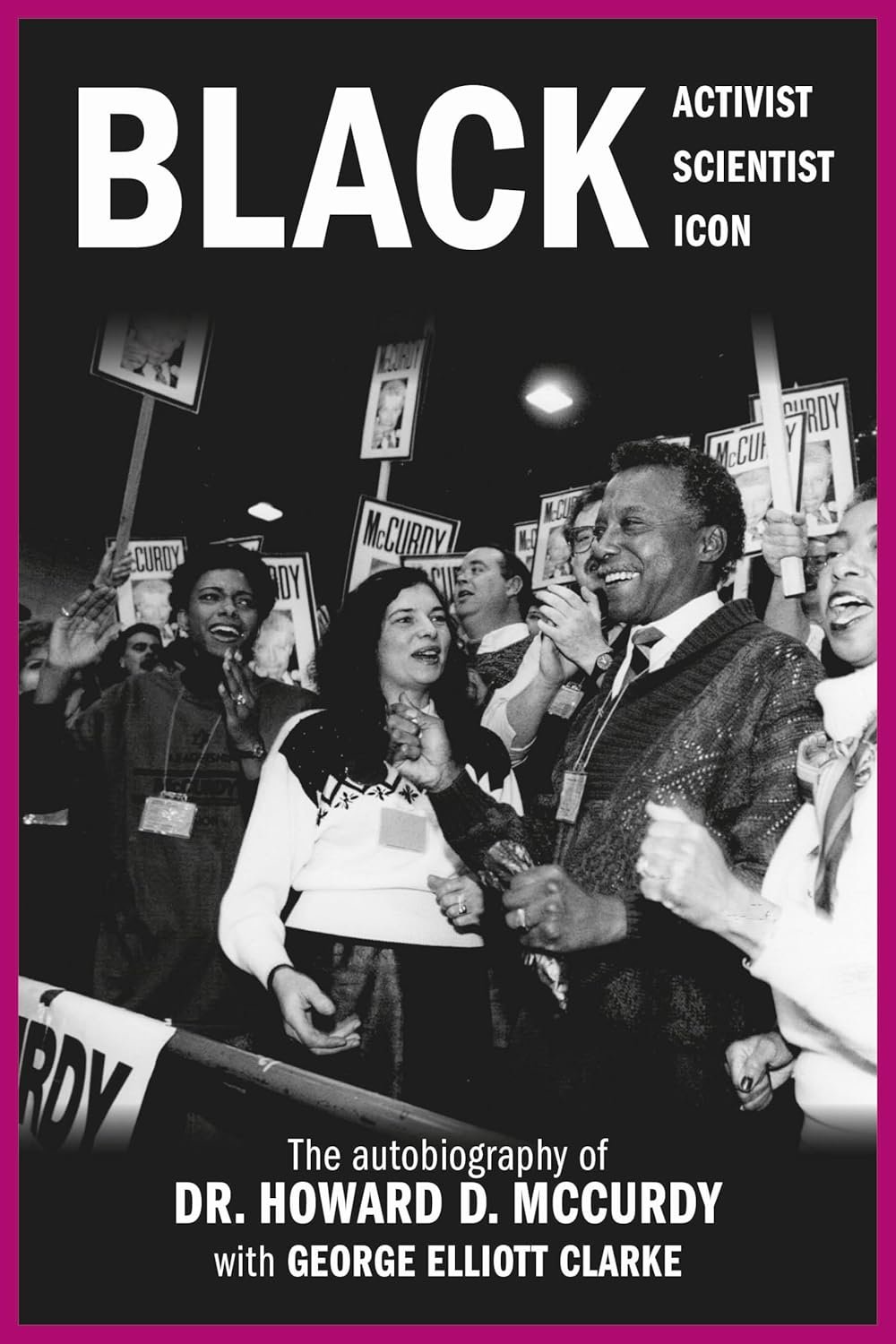George Elliott Clarke on The Life of Howard D. McCurdy: Part Two
In Part Two of our conversation about the autobiography of Howard McCurdy, George Elliott Clarke recounts the triumphs and hardships McCurdy faced as an NDP MP and a Black activist, including a vicious encounter with Canada Border Services at Windsor. To read Part One of this interview click this link.
*****
DBN: We were talking about Howard as a Father Figure.
GEC: Yes. It turned out that that was how I had to see Howard. Of course, he was my boss; I was his employee. That was very clear. At the same time, he was a Black elder in a very responsible and respectable position who had spearheaded a lot of anti-racism initiatives since the 1950s. I knew I was working for someone who was extremely significant in terms of the history of anti-racist activism in the country. Lincoln Alexander (Lieutenant Governor of Ontario) came and dropped by our office. Stanley Grizzle (Citizenship Judge) came and dropped by our office. Senator Anne Cools came to see him to welcome him to Parliament Hill. He knew that there could be a political price to pay if he was seen as being too connected to Black community issues. And, ultimately, he did pay a price in terms of his defeat in 1989 seeking the NDP Leadership. And later on, when he was denied the nominations to seek a seat in Ontario. At the same time, Howard was a very responsible activist. He was never someone who was going to say, “Let’s burn down Parliament!” Rocky Jones might have said that. But Howard was not going to say that.
GEC: Howard was not just erudite, he always carried himself as a man of distinction. He was a very important role model for me. He was the first Black, tenured professor in Canada. He was Dr. McCurdy Ph.D., Member of Parliament. I was working for him when I finally finished my Master of Arts degree, graduating from Dalhousie in 1989. I went to tell him that I had to leave my job because I was starting my Ph.D. at Queen’s. Howard did not hesitate. He said, “No. You’re not leaving me, George. I support you in going to get a Ph.D. But here’s what we’re going to do: I’m going to give you one day off a week and the day has got to be Tuesday.” So, Tuesday mornings I’d get up at 5:30, jump in the car, drive the two hours down to Kingston. I’d just do my courses and go back and work for Howard.
DBN: I know you went through some struggles at Queen’s dealing with incidents you felt were racist: How did that kind of mistreatment impact you emotionally? Howard, too, had many incidents in which he felt mistreated due to race. How did those incidents impact him emotionally?
GEC: You ask a great question, Donna. One of the things that really came home to me editing the book is the price you pay for all the crap that you have to withstand in order to progress; in order to proceed; in order to achieve your own dreams. For Howard the price was alienation, it was loneliness, it was solitude. You see it early on in his life. He was brainy Black kid in Amherstburg who loved to read. He would go into the Amherstburg Public Library which was probably a very white space.
Dr. Howard McCurdy with Marni Beal and her late husband Lincoln Alexander (c) (Photo by Ron Fanfair)
GEC: Howard was charismatic. He could make friends very easily. People were attracted to him. But, at bottom, he was very alone. He was always solitary. Apart from relationships with his wives, his family and other relatives, he was a hard person to come to know. He did not want to feel damaged by some ignorant person saying something so ridiculously revolting to him about his race – about his background - because he would probably want to punch the living daylights out of that person. So, it was better to have that cool exterior; that aloof exterior, and to only be really present as an intellectual and organizer, as opposed to letting himself be vulnerable.
Late in the autobiography comes one of the most poignant, horrible incidents. He’s been a Member of Parliament. He’s founded this and founded that. He’s Order of Canada and Order of Ontario. And now he is in his seventies leading a campaign against the Windsor Police Department for continued racism and assaults on Black citizens. That’s when Canadian Border Services harass him on his way back from Detroit. Early one morning they haul him out of his car and throw him face down on the pavement – (a 75-year- old man!)- looking for a reason to beat him. It upsets me, still! A man of that distinction! They book him for Disturbing the Peace, Insolence - all kinds of garbage, nonsense charges. And guess who’s in the room looking on: A phalanx of Windsor police officers. The whole thing was a set up to teach him a lesson. When the case goes to court, the police drop the charges immediately: They were just showing him what they could do. All of those people should be hunted down and sent to prison for their behaviour. That’s how I feel about it.
DBN: There were political disappointments he felt were linked to race as well.
GEC: Many. For example, in both 1995 and 1997 Howard had gone for provincial nominations for the NDP. His daughters attended that second nomination meeting, and they reported to him afterward that the “N” word was used. That very day Howard left the NDP. “I’ll never be part of the Negro Disappointment Party again,” he said, and he joined the Liberals.
If you would like to read Part One of this interview, click this link.






